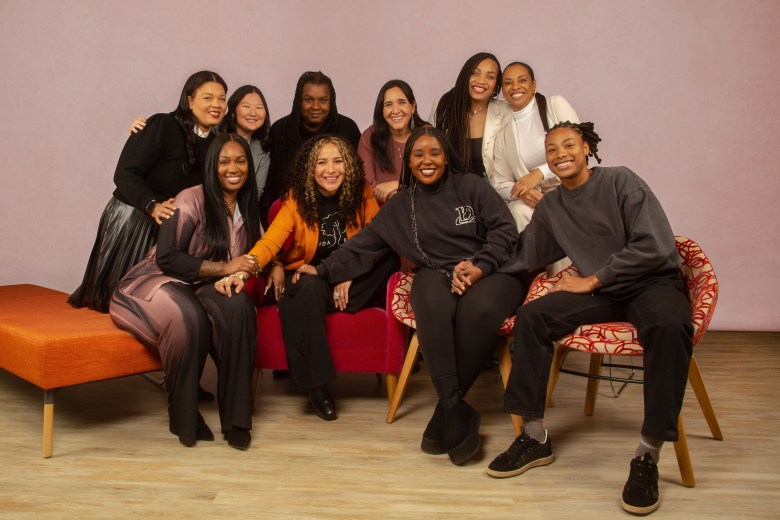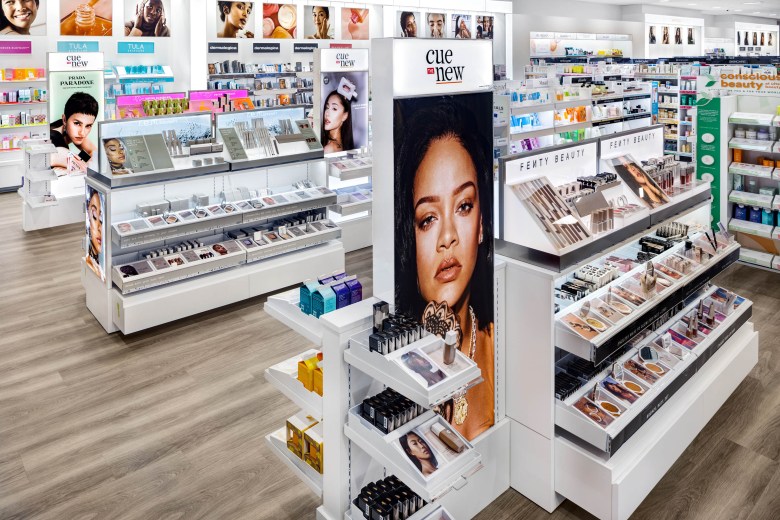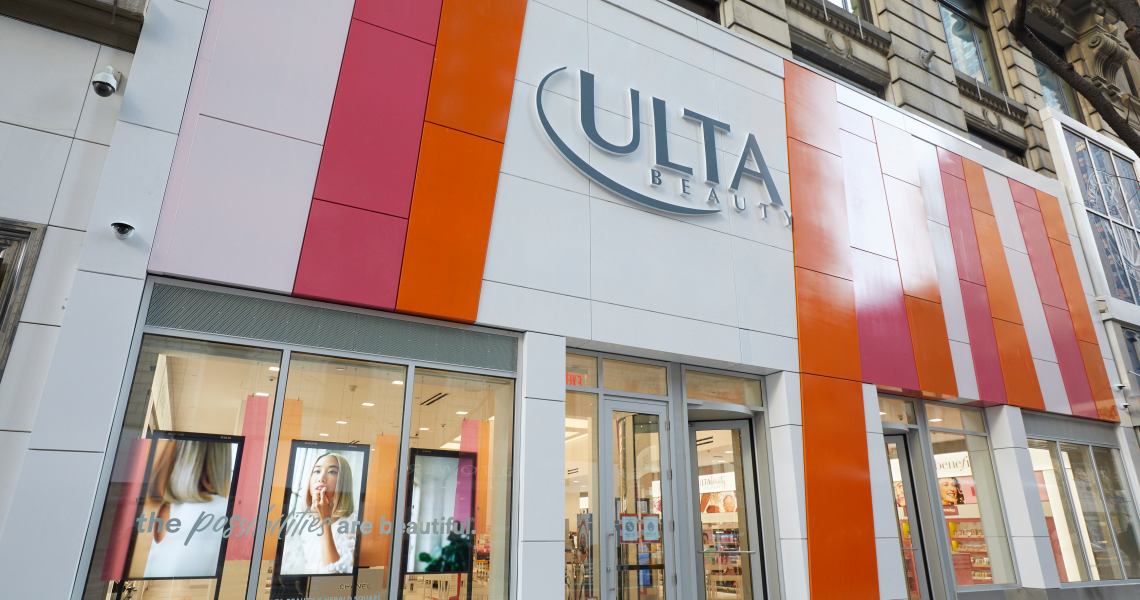Despite increased attention on funding inequities over the past few years, the lion’s share of funding still goes to brands with at least one male or white founder.
In 2023, Black founders raised less than half a percentage of the total venture dollars issued in the U.S., down more than 50% from the previous two years, according to data compiled in January by Crunchbase. All-female founding teams fared slightly better by receiving 1.8% of all VC funding last year, a dip from 2.1% in the previous two years. Thanks to strong economic headwinds, the financial pie is also smaller. Last year, startup funding fell to its lowest level in five years, taking a 30% hit from 2022, according to data compiled by Pitchbook.
With the added, politically orchestrated backlash against corporate and venture DEI programs, many beauty insiders fear a chilling effect could slow the momentum gained since 2020 for a more diverse beauty industry. It’s put a spotlight on the homegrown accelerator programs being carried out at leading retailers after pledging to diversify their store shelves, with one standout program gaining attention across the industry.
“The climate is definitely different,” LaToya Williams-Belfort, executive director of the Fifteen Percent Pledge, told Glossy. “In 2020 everybody was talking about systemic racism and putting their thinking caps on trying to figure out solutions. The steam has definitely simmered. … But what we’ve seen at The Pledge is that our partners are committed to going deeper, being more strategic, and understanding the good business of supporting and investing in Black entrepreneurs.”
The Fifteen Percent Pledge, launched in 2020 by fashion designer Aurora James, calls upon retailers to add Black-owned brands to their shelves to match the demographic of Black Americans, which is right around 15% of the population.
“Taking the pledge” means a retailer enters into a contract with the non-profit to receive analysis, support and strategy to sustainably help the store diversify its shelves over a set period. So far, 29 retailers have committed to the pledge, and the contracts run for as long as a decade for big box stores like Nordstrom. Sephora, Bluemercury, Bloomingdale’s, Macy’s, Gap and J.Crew have also taken the pledge.
The non-profit assesses its partners quarterly, though it doesn’t release a public report card. It estimates it’s shifted more than $14 billion to Black-owned brands since 2020, putting it on a pathway to reach its goal of driving $1.4 trillion of wealth generation to Black entrepreneurs by 2030 through retail purchase orders.
But entering retail is notoriously complicated and expensive for brands, so accomplishing this goal has been a moving target. Among complaints heard by Glossy, minority-owned brands stated that retailers either provide purchase orders without marketing support or offer guidance and advice without funding or purchase orders, both of which can leave emerging brands worse off in the long run.
“It’s not enough for a retailer to say, ‘OK, I’m going to incorporate Black businesses into my ecosystem, and I’m gonna let them do their thing.’ That won’t work,” said The Fifteen Percent Pledge’s Williams-Belfort. “They really need to think about what systems and strategies need to be put in place around a business’s effort toward this new portfolio and different way of working.”
Numerous retailers have developed incubator and accelerator programs through the years to provide education and resources to emerging brands. The Sephora Accelerate revamped its program in 2020 to help underscore the retailer’s diversity efforts, and it now has a strong focus on BIPOC founders, but all founders 18 years or older are welcome to apply. The same goes for Target’s Forward Founders and Walmart’s Start program, as previously reported on by Glossy. Only Ulta Beauty’s program is open exclusively to BIPOC founders.
“The [Ulta Beauty Muse Accelerator] program is really a showcase of how holistically and smartly they’re thinking about this proposition and the investments they’re making,” said Williams-Belfort.

The Ulta Beauty Muse Accelerator program began as an idea in 2020, and by 2021, Jessica Phillips, vp of merchandising at the retailer, had secured internal funding to launch the program in 2022 with its first cohort of eight indie, BIPOC-founded brands.
“Our ‘why’ came from seeing a lot of amazing brands that we were excited about, yet those brands weren’t ready for retail,” Ulta Beauty’s Phillips told Glossy. Some participants have applied for the program, while others were recruited by Ulta. The retailer is currently in a five-year contract with the Fifteen Percent Pledge.
The program blends financial investment and practical education and support to put brands on a runway to retail success. It features intensive coursework around supply chains, brand strategy and positioning, product development, and finance management. The program pairs each brand with two mentors — one founder whose brand is currently in-store and an Ulta buyer overseeing the brand’s category — and provides $50,000 grants to each brand founder.
The 10-week intensive program meets three full days per week in a remote-learning Zoom setting and is bookended with weeks spent in Ulta Beauty’s Chicago headquarters. Mentees Glossy spoke to confirm that they incurred no expenses during the program.
It’s part of a $50 million investment made by Ulta Beauty in 2022 to improve its diversity, inclusion and equity initiatives. So far, Ulta has brought on one program graduate called Poundcake, which makes lipsticks that are true to color on all lip tones.
“I walked away with a nice foundation of what it means to launch at a big box retailer,” Poundcake co-founder Camille Bell told Glossy. “Then, of course, the second part of that was the $50,000 grant. Black and brown entrepreneurs are over-mentored and underfunded, so this was great.”
Poundcake launched online and in 800 Ulta Beauty doors last year, as well as in Credo stores and online. With the grant money, Bell hired two new part-time employees: a product development consultant and an operations consultant.
Ulta’s Phillips told Glossy there are also three more graduates whose lines are entering Ulta in the next 18 months — two this year and one next — giving the program a 25% retail entry rate. This spring, Ulta Beauty will open applications for its third cohort, which starts in September 2024.
“I thought I knew [what to expect], but I didn’t know,” said 2023 cohort mentee Octavia Morgan, a former RN who developed her eponymous clean fragrance line after developing a fragrance allergy in 2020. “It was extremely comprehensive — it took us from A to Z. It was very compact but extremely accelerated.”

Morgan told Glossy the program connected her to VC fund leaders, social media agencies, buyers and industry leaders through its networking events. She said her DTC sales have drastically increased since the program and influencers have reached out to promote her product. In addition, she’s “cautiously optimistic” about a VC fund she met in the program — she hopes to receive her first investment from it soon.
For Ulta, balancing the internal demands of the program has been a challenge. To manage the workload, Phillips, who still oversees the program, enlisted senior manager of conscious beauty Renée D. Reid to manage the retailer’s evolving DEI initiatives, like Muse, as well as two new hires to help oversee the day-to-day needs of the program and mentees.
Mentors include the founders behind Mielle, Youthforia, Black Girl Sunscreen and Rizo Curls, among other brands.
“Our merchant mentors have other day jobs, but during those 10 weeks, they are leaning in [and Muse is] one of their stretch assignments,” Phillips told Glossy. “The brand mentors, also [work for] gratis, but we definitely compensate them in other ways. We give a donation to the charity of their preference and lean in with [extra] exposure for their brands. … We find ways to give back.”
“We have made progress,” Philips told Glossy about Ulta’s DEI goals. “We’ve doubled our penetration since we started the work, with some categories, like hair care, having surpassed 15%.” Successful brand additions and expansions outside of the Muse program include Juvia’s Place and Youthforia cosmetics, Phillips said.
A successful rollout into Ulta can mean quick success, including through strategic acquisitions, for brands that fill white space. Five-year-old Curlsmith, for example, launched with Ulta as its exclusive retailer, before being sold to Helen of Troy for $150 million in 2022. The same year, it expanded to Sephora, Asos and Beauty Brands, among other retailers.
Tula Skincare is another: It launched into Ulta Beauty with five SKUs in 2018 and quickly became the retailer’s fastest-growing prestige skin-care brand, Tula’s CEO told Glossy in previous reporting. The brand had expanded to more than 40 products when it was acquired by P&G in 2022 for an undisclosed amount.
Ulta also carries a cache that has helped Muse cohort mentees gain traction industry-wide.
“Muse was a program that I dreamed about getting into because, when you’re an entrepreneur, there are only so many things you can find on Google or in a book,” said Olivia Bae, co-founder of mass hair-care brand Perseve. “To grab these resources and be in such a prestigious program like this made it a no-brainer for me to apply when the application [opened] for the 2023 cohort.”
Bae told Glossy the program completely changed her perspective on her brand’s positioning and gave her financial guidance that helped her to properly plan for retail. “They basically hand you a handbook [to enter retail],” Bae told Glossy. “I have all the best things to say about the program; we felt very supported.”
While Perseve does not currently have plans to enter Ulta, the experience led to a similar opportunity. Thanks to the press the program brought to her brand, she was able to move a relationship with another big box store forward and will be launching nationwide in February 2025. “[Completing the Ulta program] had a lot to do with this [offer],” she said, noting that the store she is working with now placed a lot of weight on the education she gained with Ulta.
‘We’re doing this for us, of course, but we’re also doing this to make beauty more inclusive on the larger scale,” Ulta’s Phillips told Glossy. “If a brand doesn’t land with us, but it’s in the industry, it’s healthy and it’s thriving, that’s going to help on the impact piece of it [for the entire industry].”
However, the program led some founders to hold off on big-box retail, said Ron Robinson, brand founder of Beauty Stat and 2022 cohort mentor. “[The brand I mentored, Yina] felt at the end that they were going to wait until they had more funding to support themselves with the launch at Ulta,” he told Glossy. “Part of the program is understanding, ‘What does it take? What do you need to win there? They learned that they needed a little more time, even though they were being accepted and welcomed.”
Yina is a skin-care and wellness brand inspired by East Asian medicine and rituals. It’s currently available DTC and at small retailers like Goop and Beauty Heros. Founders Ervina Wu and Angela Gray didn’t reply to Glossy’s request for comment.
“Starting and scaling a business is a lot of work, and some of the mentees were a bit shocked by all the details involved with running a business,” Ju Rhyu, 2023 cohort mentor and co-founder of Hero Cosmetics, told Glossy. “There is a big learning curve [to being ready for retail]. The operations behind becoming retail-ready was a big eye opener for many of the founders, and thankfully, Ulta’s program was very thorough.”
Ulta Beauty declined to share the Muse Accelerator program’s exact budget, but Glossy spoke to several mentors and mentees and estimated the program could easily surpass $1 million per cohort with only external costs. That includes a $50,000 grant for all eight brands, plus travel, meals, materials, accommodations and incidentals for trips to Chicago for both mentees and eight mentors.
Then there are events and promotional marketing dollars — such as gratis inclusion into an endcap or promotional selling period for brands selected for retail — as well as internal resources.
But the expansion of its offerings, and the ability to mold a brand into the space they need to fill in store, has been invaluable, Phillips said. “Muse [fits] the way we look at brand scouting as an organization,” she told Glossy. “There are a lot of brands that need that funding and support earlier on.”
As far as the curriculum, Phillips also realized how far it could go with existing brands, so she now offers some of the content to founders during Ulta’s BIPOC brand summits, which kicked off in 2023 with a spring and fall event. “This content isn’t just for brands that are getting retail ready — it’s really for everybody. There’s a huge win in that,” she said.
As far as the attack on DEI programs, such as the ongoing lawsuit against the Fearless Fund’s Fearless Strivers Grant for Black entrepreneurs, Phillips said it has no qualms about its programming.
“As an organization, we face the same attacks that every large company faces. And what I love, and why I was inspired [to do this], is that our CEO [Dave C. Kimbell, who came aboard in 2021] always approaches it head-on and says, ‘I don’t care [about our adversaries]. We are doing what’s right for our guests and we are doing what’s right for our communities.’ And if you’re grounded in that, everything else is easy,” Phillips told Glossy. “I don’t want to say [the attack on DEI] doesn’t bother us, but it’s very clear to us that if you focus on the guests, your communities and your associates, you will win.”
As far as what 2024 will bring to the Muse program, Phillips told Glossy it’ll be bigger and better this year. “This is going to be a huge point of investment of time and energy from my team this year,” she told Glossy. “We have some great examples [of its successes right now], but we are going to have more, and I feel passionately that this is going to be something that we’re known for in the future.”




